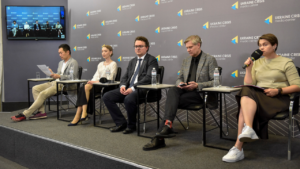The tragedy in Yahidne and the motivation of victims: Foreign delegates of the Crimea Global conference visited the Chernihiv region
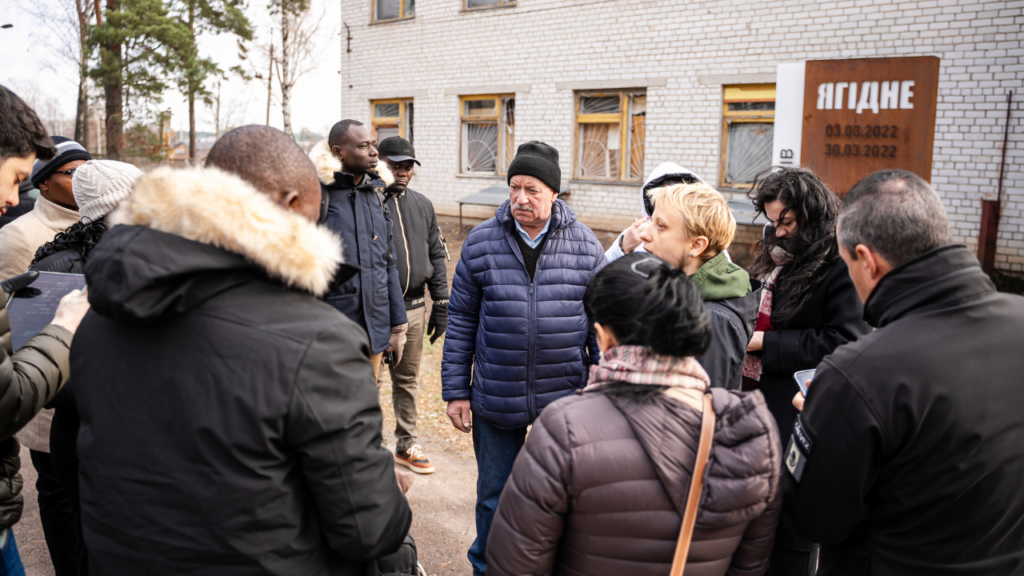
On November 21, the Second International Conference, “Crimea Global: Understanding Ukraine through the South,” began in Kyiv. The two-day event brings together foreign delegates from various countries in Africa, Asia, and Latin America to discuss current challenges and opportunities for cooperation with Ukraine. In addition to panel discussions, several special events took place as part of the conference. One of them focused on motivating victims in the justice process. The event was organized by the Media Initiative for Human Rights and the Human Rights House in Chernihiv.
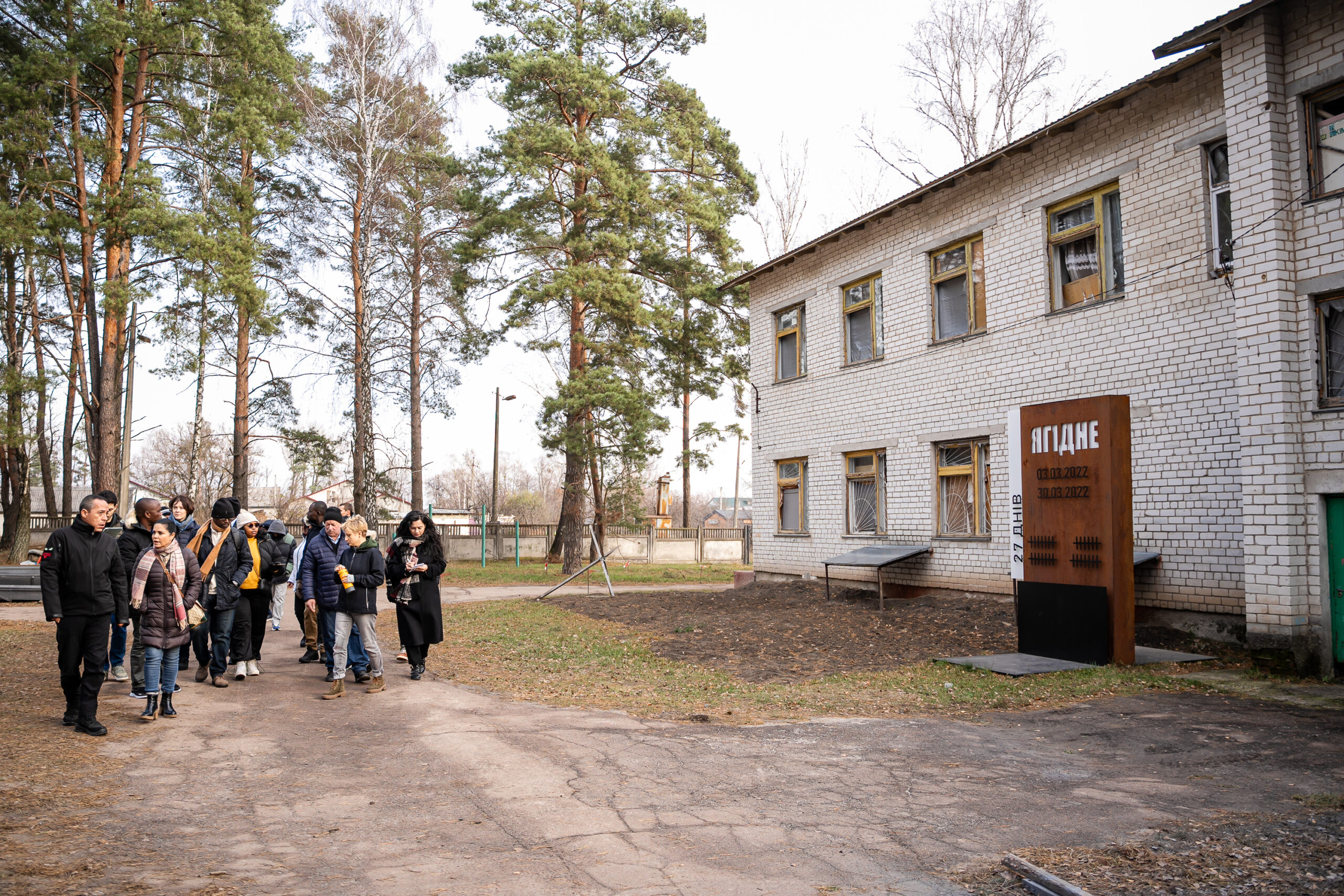
Before the discussions began, delegates from Mexico, Brazil, Sudan, and Iraq visited the village of Yahidne in the Chernihiv region. In March 2022, during the occupation of the area, Russian forces held 368 local residents in the basement of the village school for 27 days. The civilians were used as a human shield for the Russian headquarters located on the school’s first floor. Due to suffocating conditions, a lack of adequate food, and medical care, 10 residents of Yahidne died.
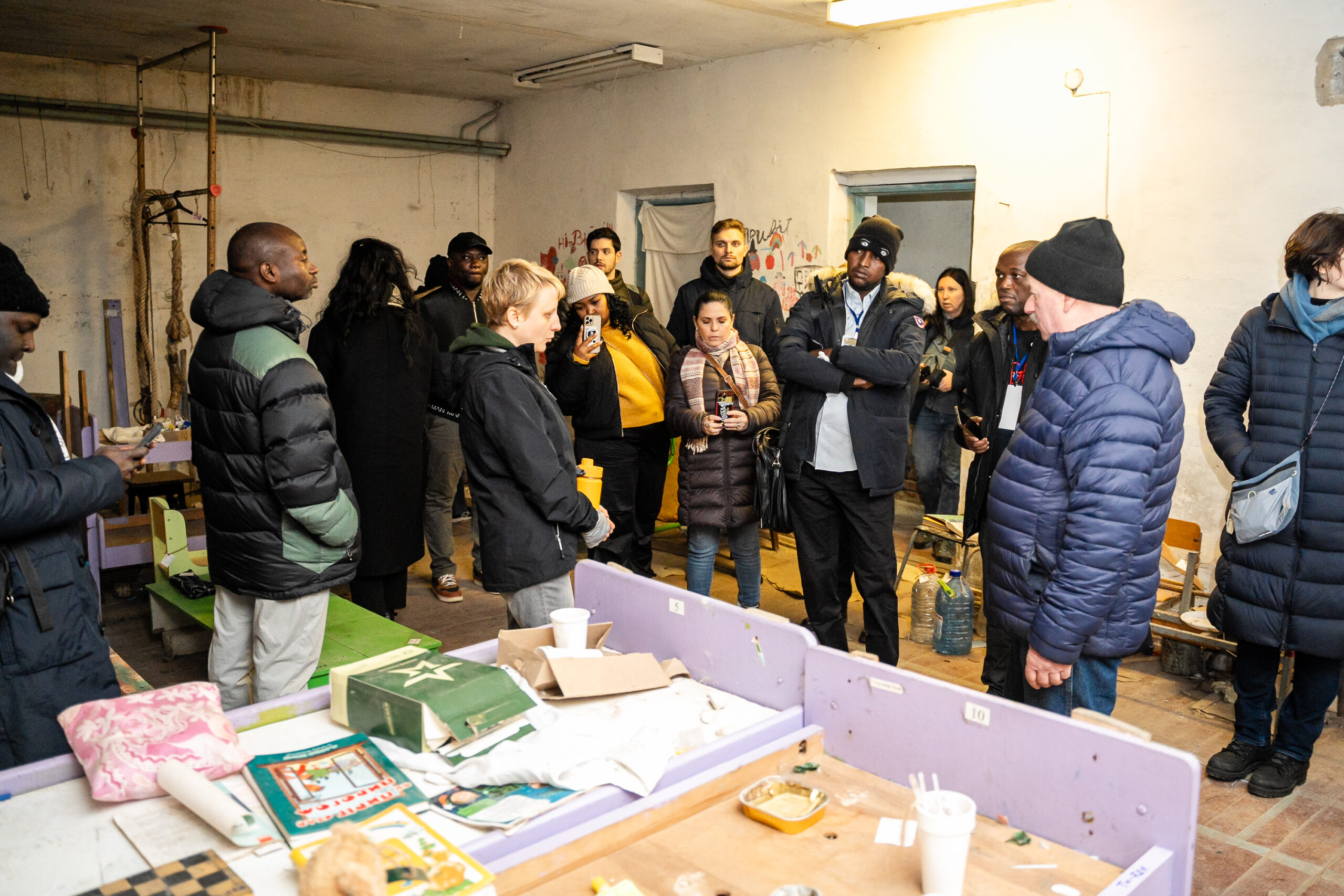
The international delegation inside the basement in Yahidne, where local residents were held as a human shield by Russian forces. Photo: Anastasia Mantach
During the discussions, the event moderator, Olga Reshetylova, head of the Media Initiative for Human Rights, emphasized the critical role of victims in war crimes trials. However, the longer the judicial process lasts, the less interest victims tend to show. For instance, at the beginning of the in-absentia trial of those responsible for the tragedy in Yahidne, victims regularly attended court hearings. Yet, by the appeal stage, no one was present in the courtroom.
“The justice process is complex, and without the support of specialized organizations, victims and witnesses, unable to navigate it on their own, lose motivation to participate,” Reshetylova explained.
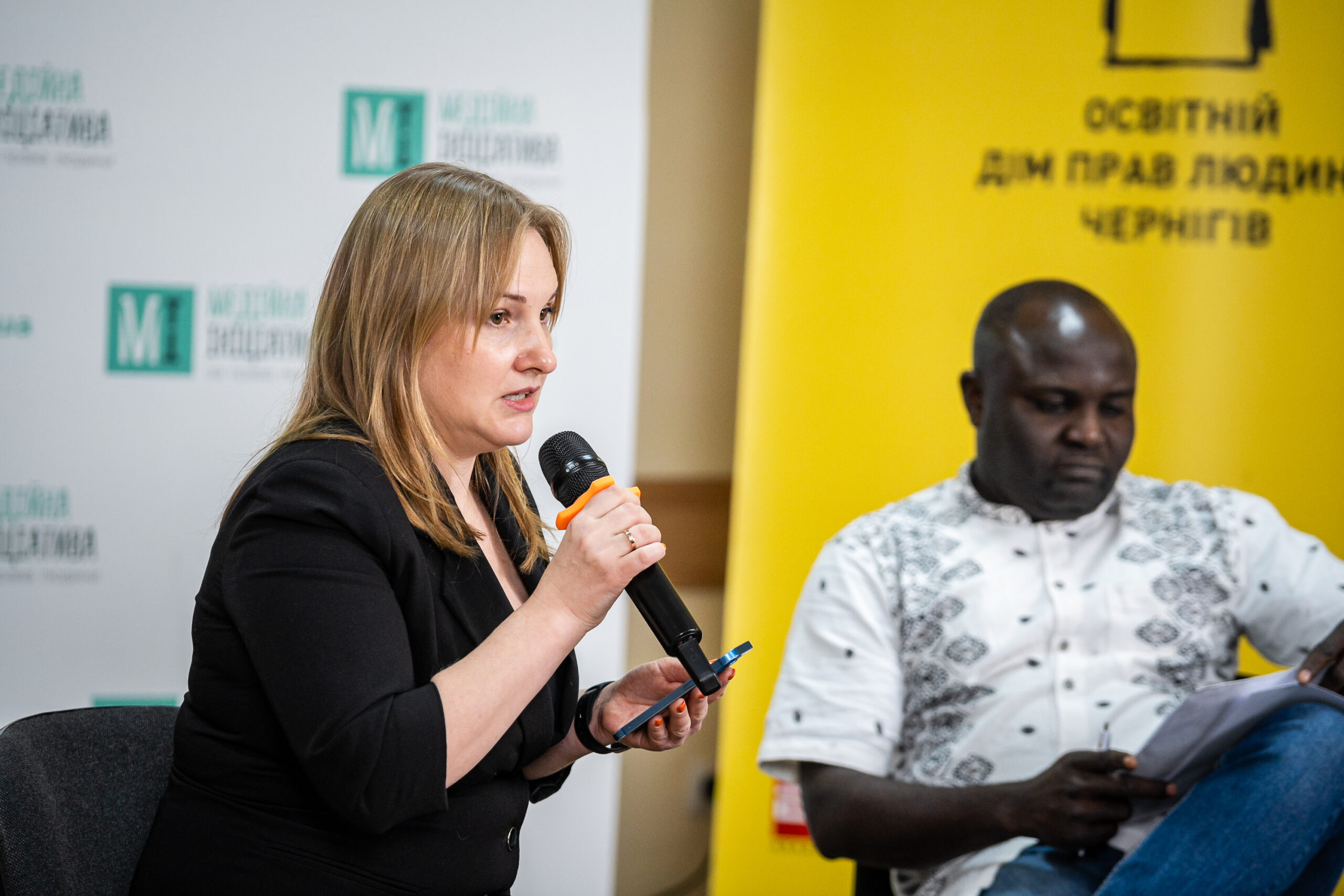
Olga Reshetylova, head of the Media Initiative for Human Rights. Photo: Anastasia Mantach
Sergii Burov, Director of the Educational House of Human Rights — Chernihiv, spoke about the challenges of documenting war crimes, sharing experiences from fieldwork and implementing human rights education programs. He highlighted the importance of providing psychological and legal support to victims, advocating for a human rights-based approach in both documentation and justice.
“In this process, we have two goals: holding perpetrators accountable and telling the world the truth. When interviewing witnesses and victims, it’s crucial that people understand these goals and actively participate in achieving them with us,” Burov said.
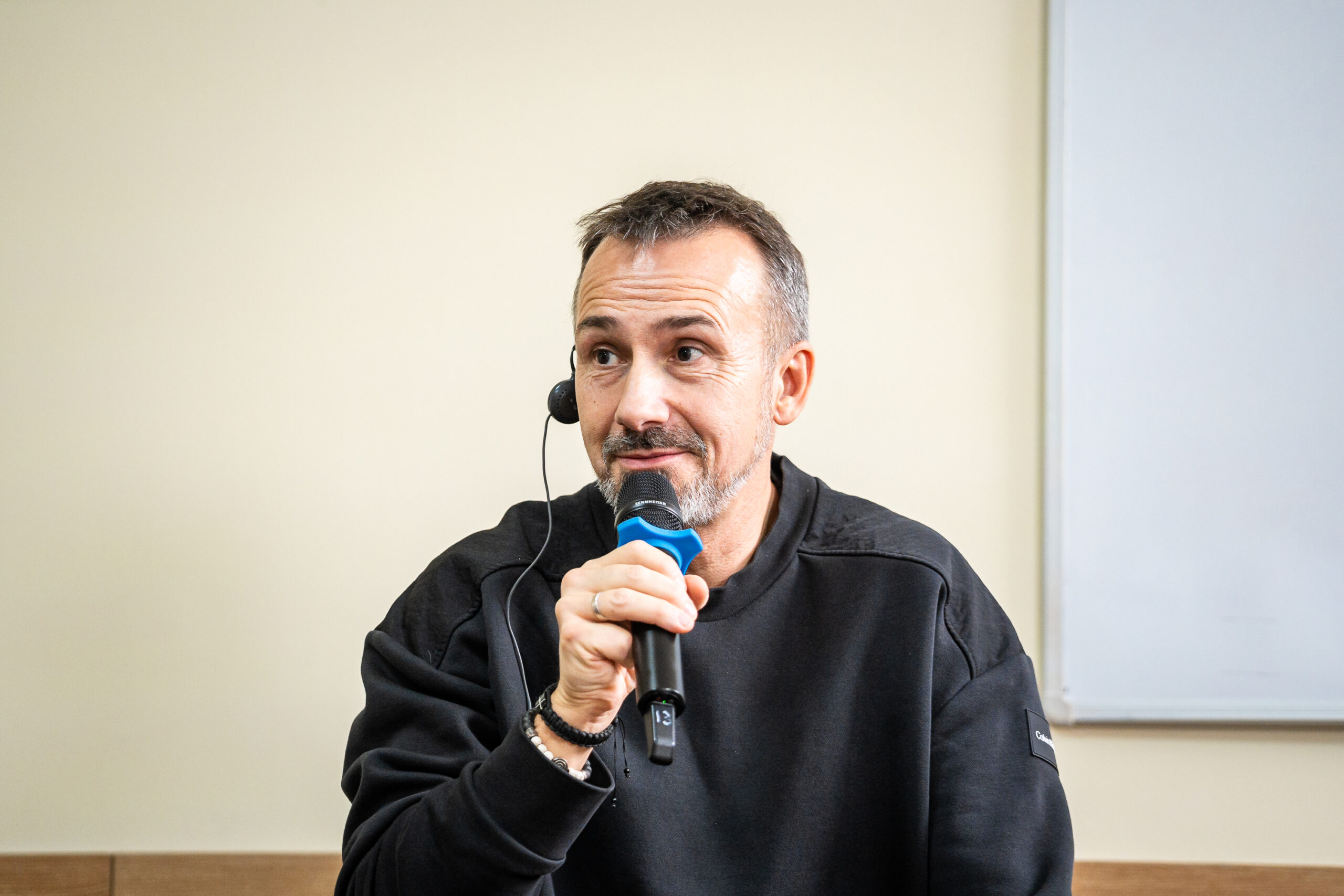
Sergii Burov, Director of the Educational House of Human Rights. Photo: Anastasia Mantach
Natia Navrouzov, Executive Director Yazda NGO in Iraq, shared the history of genocides against the Yazidis, a religious minority with an ancient faith that dates back 6,000 years. Due to misconceptions about their beliefs, the Yazidis have faced repeated persecution, including during the Ottoman Empire and later from Al-Qaeda. In 2014, Yazidis in Iraq were targeted by ISIS through mass killings, sexual slavery, and abductions. Navrouzov emphasized that despite the efforts of human rights defenders and the UN Investigative Team, tens of thousands of Yazidis still live in temporary camps, and women and children remain in captivity. She called for international collaboration among human rights defenders to establish sustainable and effective mechanisms for holding perpetrators accountable:
“This Yazidi genocide continues because there are no mechanisms to address its root causes. Without resolving these underlying issues, the risk of repeated genocide increases.”
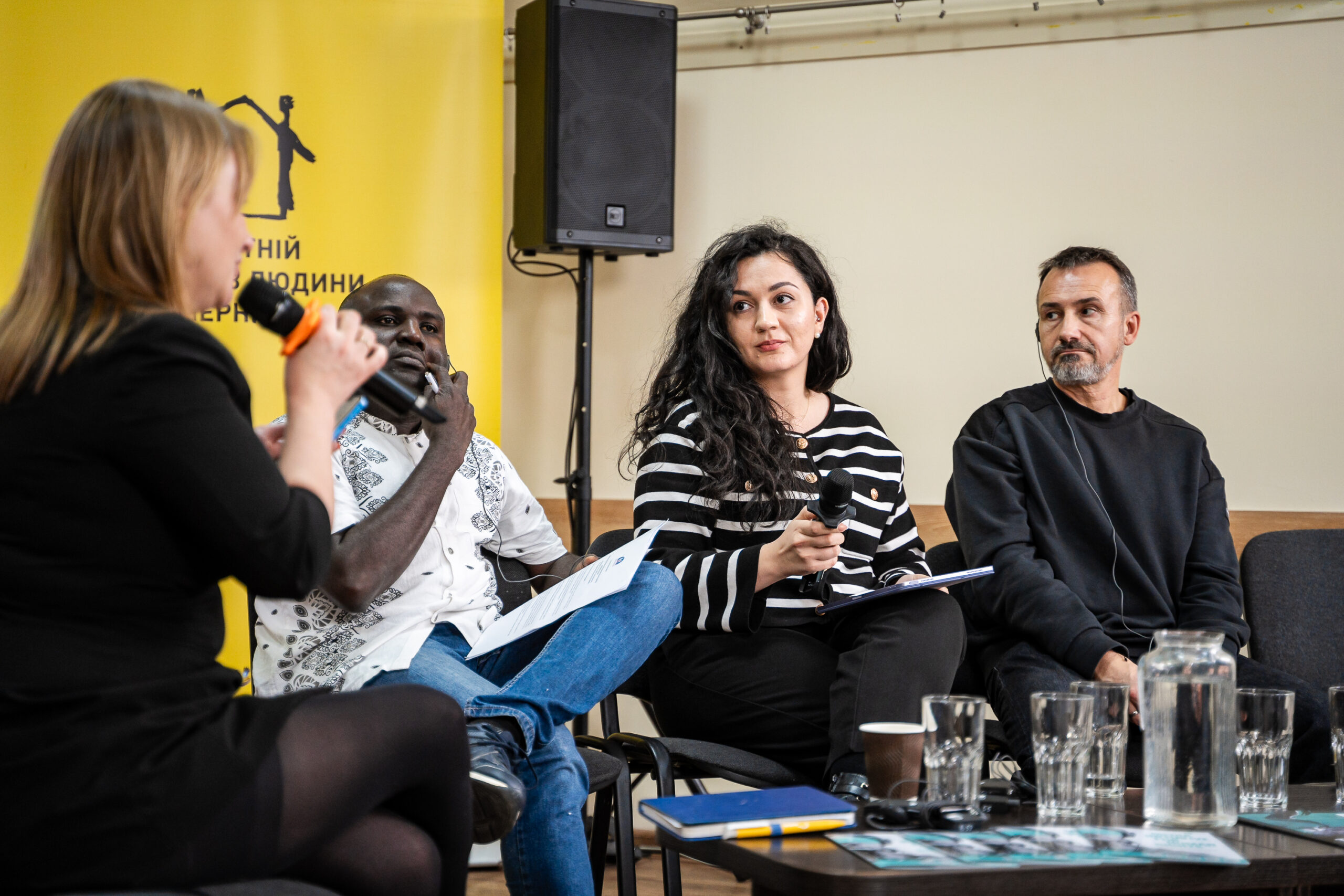
Natia Navrouzov, Executive Director Yazda NGO in Iraq. Photo: Anastasia Mantach
Meanwhile, Fadel Abdulghany, Founder and Executive Director of the Syrian Network for Human Rights, focused on the opportunities provided by universal jurisdiction mechanisms in cases where transferring cases to the International Criminal Court is impossible, such as in Syria, where Russia has used its veto power to block such measures in the UN Security Council, thereby “protecting” the Assad regime. While achieving accountability for top officials under universal jurisdiction is nearly impossible, these processes help keep the situation in Syria at the forefront of the UN Security Council’s and the world’s attention.
“Through universal jurisdiction, we secured a verdict in a specific case acknowledging that torture and violence constituted crimes against humanity. This verdict can applied to the entire Assad regime, which has been characterized by such methods. Universal jurisdiction is not a substitute for the ICC but has its advantages,” Abdulghany summarized.
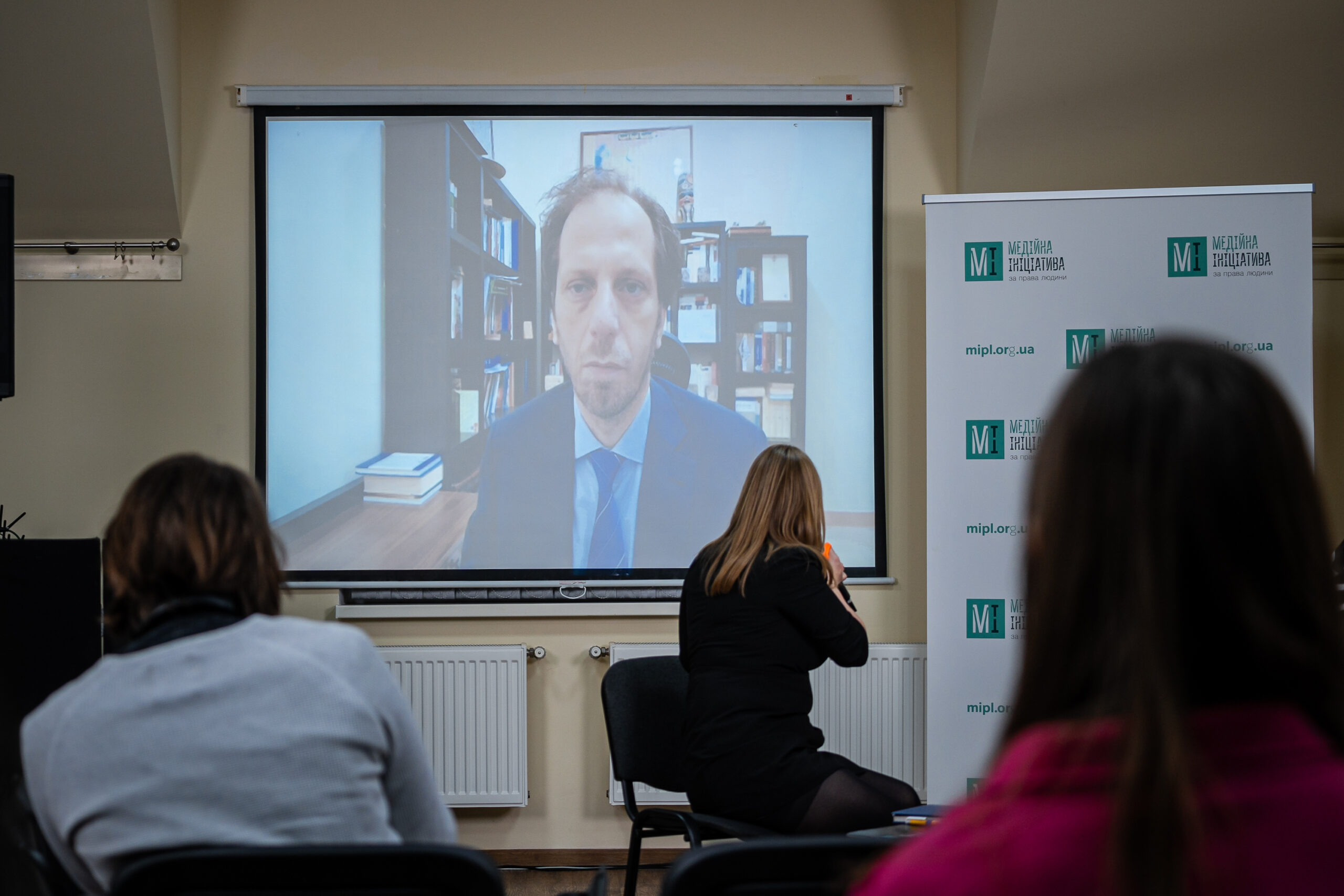
Meanwhile, Fadel Abdulghany, Founder and Executive Director of the Syrian Network for Human Rights. Photo: Anastasia Mantach
Mohammed Hassan, Executive Director of the Darfur Network for Human Rights (Sudan), underscored the importance of documentation as a key element in obtaining justice for victims of war crimes in Sudan, including the genocides in Darfur. He shared his personal story of loss linked to the genocide and his journey to establishing a network of human rights organizations. He advocated for the systematic collection of evidence to achieve international recognition of war crimes.
“Over these two days in Ukraine, I’ve realized the critical importance of memorialization. In 10 or 100 years, we must know how many people died and under what circumstances. Without documentation, this will be impossible,” Hassan said.
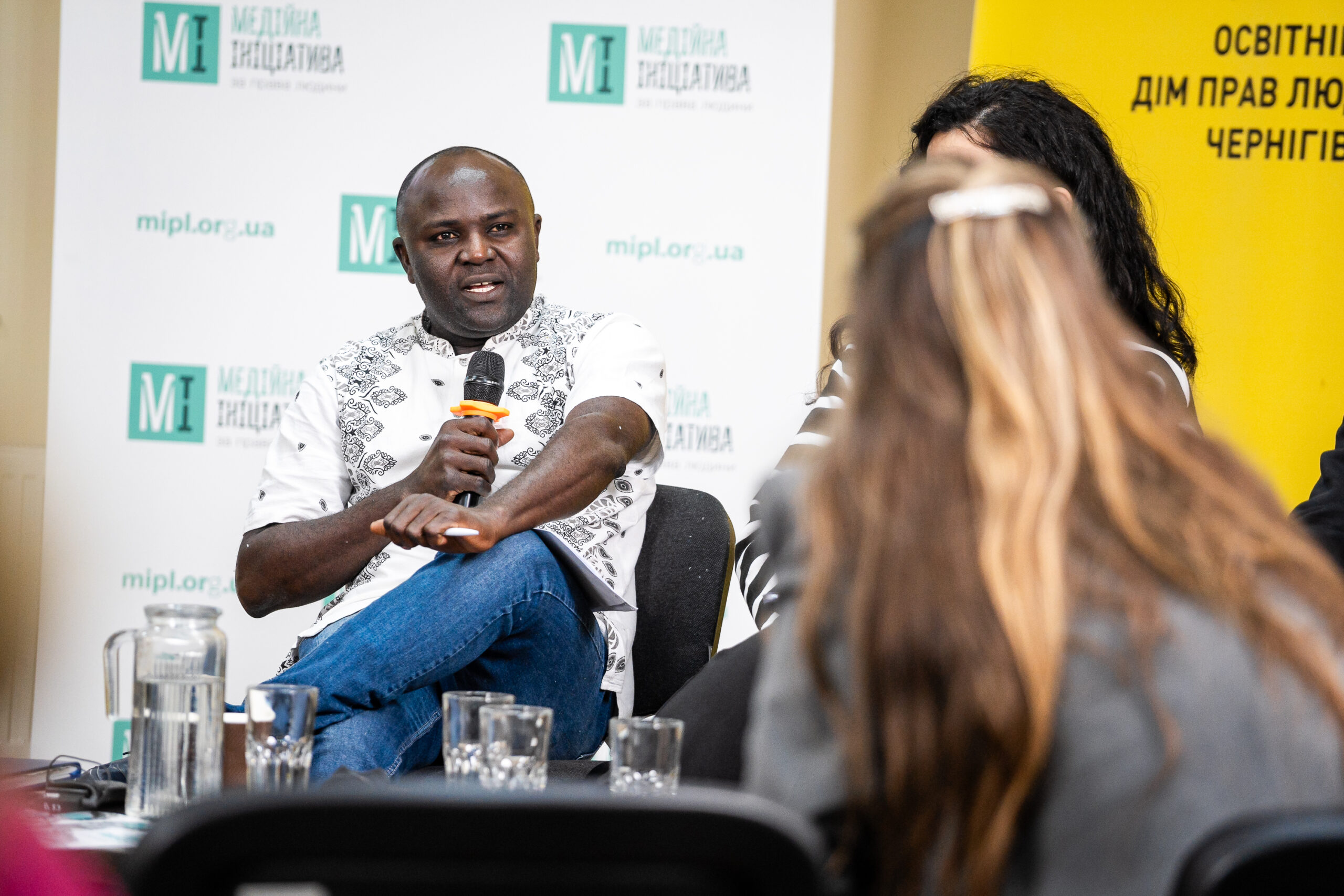
Mohammed Hassan, Executive Director of the Darfur Network for Human Rights (Sudan). Photo: Anastasia Mantach
Veronika Plotnikova, Head of the Coordination Center for Victim and Witness Support at Ukraine’s Prosecutor General’s Office, described their work in assisting war victims. The Center began operations in January this year and recently opened offices in nine occupied and frontline regions. Plotnikova stressed that the Center does not engage in documentation or interrogations but focuses on providing victims with comprehensive support throughout the justice process, from psychological assistance to preparing for interviews.
“Currently, we see a lack of communication with victims. They struggle to understand where and what help they can receive in the justice process. We must build state mechanisms so that victims see both the entry and final points of their journey. We are working on this,” Plotnikova said.
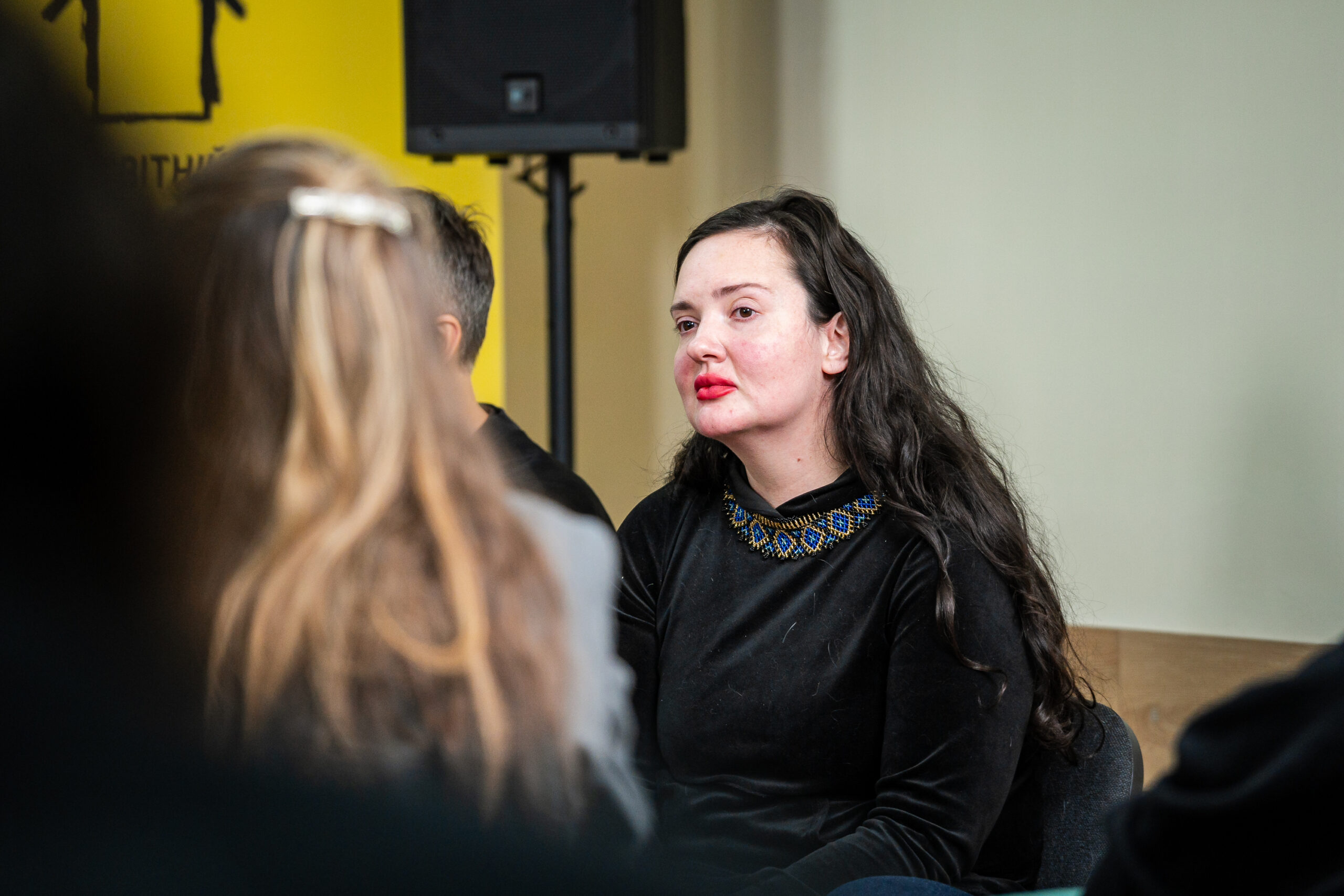
The Crimea Global conference is organized at the initiative of the Mission of the President of Ukraine in the Autonomous Republic of Crimea / Crimea Platform Office, with co-organizers Media Initiative for Human Rights, ZMINA Human Rights Center, PEN Ukraine, and with the support of the Centre for Information Resilience.




